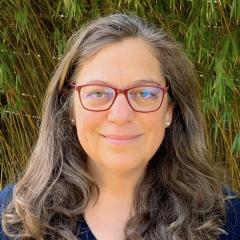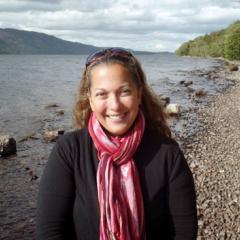Inaugural National Adaptation Forum: Whole lotta adapting going on!
Editor's Note: The following article first appeared on the Climate Adaptation Knowledge Exchange (CAKE) website. CAKE was founded by EcoAdapt (1995 Switzer Fellow Lara Hansen's organization) and Island Press in July 2010, and is managed by EcoAdapt. It is aimed at building a shared knowledge base for managing natural and built systems in the face of rapid climate change. You can read the original post at: http://www.cakex.org/community/advice/whole-lotta-adapting-going
The Switzer Foundation awarded a $1,000 grant for the event.
For those of you adaptation fans out there who couldn’t make it to Denver the first week of April, you missed out on an event that is getting rave reviews. Despite restrictions on federal agency staff travel (a.k.a. the sequester), the Inaugural National Adaptation Forum drew nearly 500 people to its 60 symposia, 28 working group and 12 training sessions. Representing 43 states[1] and the District of Columbia, two territories, five Canadian provinces and two continents, a diverse crowd shared their ideas and questions relating to the challenges climate change brings to their work and lives. Depending on your perspective either none of us was an expert or we were all experts. Regardless, we were all engaged in the issues and eager to create solutions where today there may only be problems.
Here’s what the Mavens took away:
You are not alone! There were 500 people who made it to Denver to discuss these issues, and many more who wanted to come. Apologies to all on the waiting list, but the fire marshal said we couldn’t register any more than that! If 500 people could find out about this event and get to Denver, just think how many more like-minded resourceful, creative thinkers there are out there. So if one of your 499 new colleagues isn’t around to help you, or if you couldn’t make it to the Forum, try chatting with folks in your region and create your own regional hub of adaptation brilliance.
There are great ideas being tried all over! Many of the adaptation examples shared at the Forum were solutions to problems not initially identified as climate change-related or were not sold as climate change adaptation action. Many more were methodically planned as climate change adaptation. All of them are going to move us towards deeper understanding of what works and what gets the preferred outcome. We need to be doing more to capture, celebrate, and share this learning…including lessons in what did not work so we can figure out why. Stay tuned. The plenaries were all taped [they will be posted on the Forum website (www.nationaladaptationforum.org) soon so you can see for yourself] and the presentations from the sessions will be posted as PDFs linked to the Forum program so you can find more details on those as well.
We have work to do. There are heaps of great ideas but that does not diminish the heaps of challenges people are still thinking through. There was much talk at the Forum about how we learn from others (both from successes and failures), as well as how we build more connections between efforts to work toward more holistic adaptation practice (“Hey, don’t put that levee in my wetland!” or “Hey, can we restore more wetland habitat where we built all those impermeable parking lots so our city won’t flood anymore?” or more generally “Hey, why are you doing something that doesn’t protect what I care about?”). The power of a single adaptation action is magnified when we share it with others.
We can do it. There are heaps of great examples, innovative people and powerful tools (like the Climate Adaptation Knowledge Exchange) out there to help us make this happen. There is a growing community of people who are just starting to find each other, learn from each other and work together to come up with even better ideas!
The Inaugural National Adaptation Forum was just a stepping stone in the path to a climate savvy future. Don’t lose momentum, don’t forget about your community, and don’t forget that even actions that seem trivial to you can be inspiring or enlightening to others (“oh, so THAT’S what adaptation looks like! I can do that!”). We’re all in this together!
See you in 2015! Or sooner!
[1] This of course leads you to want to know who wasn’t there. Well not to name names but...Alabama, Arkansas, Kansas, Mississippi, Missouri, Nebraska (which was right next door for goodness sake!) and North Dakota. If you know adaptation practitioners in those states make sure you reach out to them. They may be a little lonely.

